Description
ABSTRACT
Checkmating the Unconventional Loan Recovery Tactics of Digital Loan Sharks
Michael O. Ogunjobi*
The conduct of some digital loan fintech companies – calling/texting contacts of defaulters for the sole purpose of threatening, maligning, disgracing, and subjecting them to public ridicule through the circulation of pictures and details on social media and practically conducting extra-judicial criminal trial cum conviction amongst others – has gained ground. Admittedly, the grant of loans is accompanied by consequences upon default. However, parties cannot, by agreement, seek to enforce a contract by resorting to illegalities during debt recovery. The ease with which digital loan fintech companies at the preliminary stage of the loan application process access loan applicants’ data and the attendant misuse calls for regulation of their activities as ‘Data Controllers’. Several Agencies of Government play different statutory roles in curtailing the excesses of some digital loan fintech companies. The prevalence of the infractions of the privacy and slander of debtors, outrageous interest rates, short repayment duration and highhandedness of some of these digital loan fintech companies, acclaimed as loan sharks owing to their resort to unethical and illegal practices in debt recovery, make it seem as though the digital loan fintech companies operate unregulated. Many groups have been created across different social media platforms dedicated to fighting what users of digital loan applications consider the injustice of some digital loan fintech companies in Nigeria. The role of law as an instrument of social engineering is apt in this regard to avert the breakdown of law and order.
Keywords: Loan, Data Privacy, Fintech, Digital Credit.
INTRODUCTION
A fast-growing phenomenon in many emerging markets is the novel Mobile loan applications offered by digital loan fintech companies who provide ‘digital credit’ to low income households with little or no financial knowledge employing digital data to make lending decisions via automated processes.1 This is in the spirit of the recent policy of financial inclusion being driven by international organisations for the benefit of individuals considered as disadvantaged, unbanked or excluded from the formal financial sector; at the G20 Summit Seoul (2010), the G20 Leaders recognised financial inclusion as one of the main pillars of the global development agenda.2
* LL. B, BL, LL.M. The author is a member of the Chartered Institute of Loan and Risk Management, Nigeria and the Head, Litigation Dept. in the Chambers of Norrison I. Quakers SAN. Email: mi*************@***oo.com.
- See ‘Digital lending is the next horizon for Africa’s banks, says Skaleet CEO’ (African Business 3 December 2021) accessed 1 September 2022.
- See G20 2020 Financial Inclusion Action Plan accessed 1 September 2022

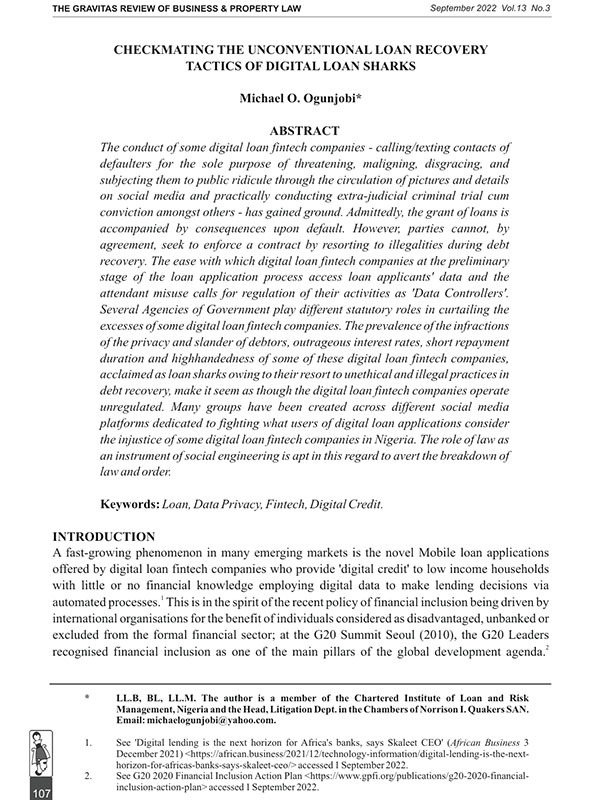
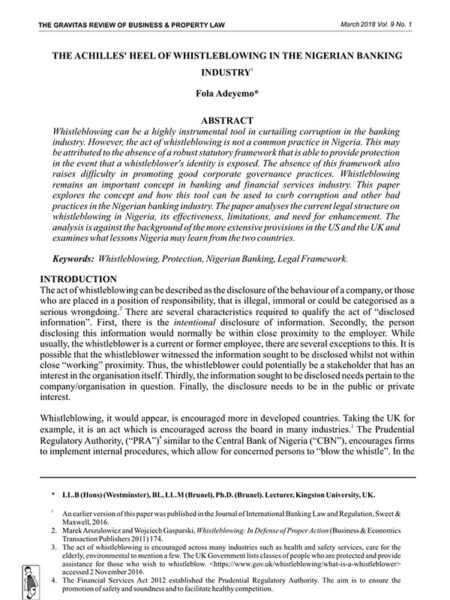
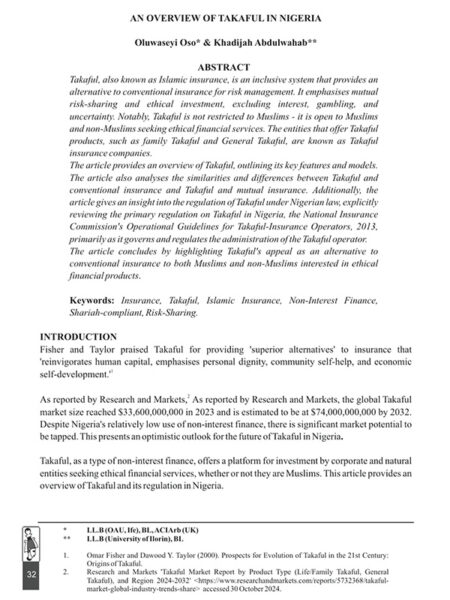
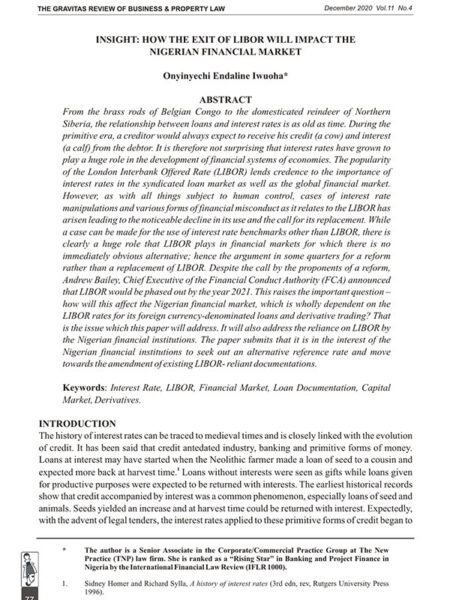
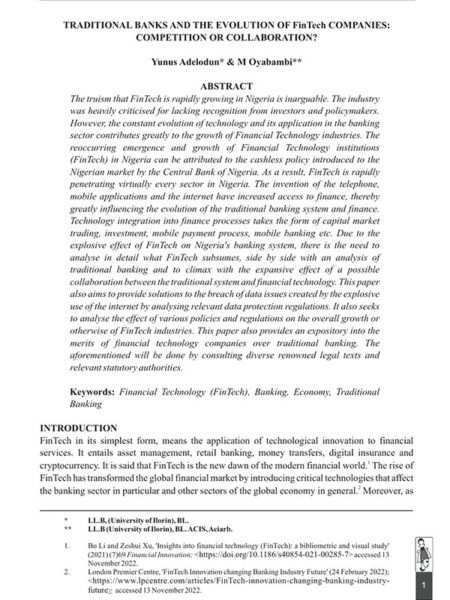


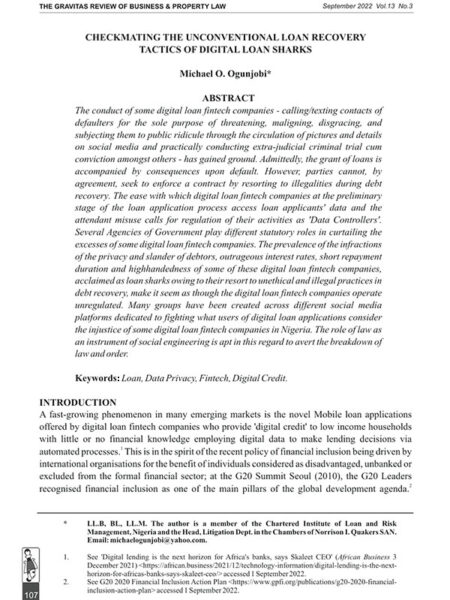
Reviews
There are no reviews yet.